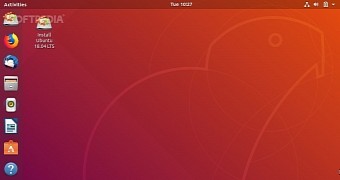Canonical's Mark Shuttleworth announced last week at OpenStack Summit Berlin 2018 that his Linux company will support the Ubuntu 18.04 LTS operating system for no less than ten years.
During a keynote at the OpenStack Summit 2018 conference, which took place last week in Berlin, Germany, at CityCube, from November 13th to 15th, Canonical CEO Mark Shuttleworth revealed the fact that the Ubuntu 18.04 LTS (Bionic Beaver) operating system series will be supported with software and security updates for 10 years, until April 2028.
"I’m also delighted to announce that Ubuntu 18.04 will be supported for a full 10 years. In part because of the very long time horizons in some of those industries, financial services and telecommunications, but also in the IoT where manufacturing lines are being deployed that will be in production for at least a decade," said Shuttleworth.
First Ubuntu release to be supported for 10 years
Ubuntu 18.04 operating system series is an LTS (Long Term Support) release that usually gets five years of support with software and security updates, as well as regular point releases. However, Canonical's key focus on Telcos for Ubuntu deployments, Ubuntu 18.04 LTS will get 10 years of support instead of 5 like other LTS releases.
Codenamed by Mark Shuttleworth as the Bionic Beaver, Ubuntu 18.04 LTS was released earlier this year on April 26, and it already received a first point release, version 18.04.1, which includes the latest security and software updates in an up-to-date installation image. Ubuntu 18.04 LTS was supposed to be supported until April 2023, but it just became the first Ubuntu release supported for ten years.
Of course, only Ubuntu will be supported for 10 years, not the official flavors like Kubuntu, Xubuntu, Lubuntu, Ubuntu Studio, Ubuntu MATE, Ubuntu Budgie, or Ubuntu Kylin. Probably both Server and Desktop editions of Ubuntu 18.04 LTS (Bionic Beaver) will receive the 10-year support promised by Mark Shuttleworth during his keynote at OpenStack Summit Berlin 2018, which you can enjoy below.

 14 DAY TRIAL //
14 DAY TRIAL // 